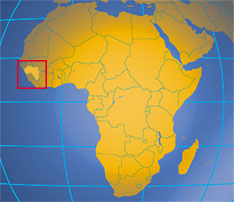August 15 we set sail from Tenerife where the ship had completed its many 5-year surveys (not questionnaires, but technical inspections). Tenerife was a time when we were reminded that we live on a ship, not just a floating hospital. The engineers, deck and special project departments worked (literally) around the clock to complete all the necessary work that needed to be done this summer. For those of us not in those departments, it tends to be a slower season - one of preparation and planning for the next field service, or picking up the pieces from the last.
With the work complete, we prepared to sail. How do you prepare to sail? By securing everything to a surface so if the boat sways 20 degrees in either direction, nothing gets destroyed or destroys you. All knick knacks off the shelf. Anything standing needs to be secured to the walls or ceiling (bungee cords around the fridge to keep it closed, and a brace to attach it to the ceiling). Televisions get moved to the floor. Computer towers and monitors get caulked to the desks. Small objects are sticky tacked into place.
Does the ship empty out in the summer? No. There were still over a hundred crew that were onboard - in addition to the technical crew there were others to cook, run power, pay bills, tour the guests, clean, process visa and customs paperwork, prepare for the arrival of new crew, etc.... For some of our crew, especially those from West Africa, this was their first time traveling to a Western country - a huge culture shock!
Sunrise.
All day, all evening.
After five days we saw evidence of land: many ships in the waters with us, and water birds.
The excitement of the arrival builds, even with the 49 academy students onboard! They've been learning about Guinea in preparation!
Pulling into Conakry brings all sorts of anticipation - when will this feel like home? Will it be like Togo? Will it be like Sierra Leone? Will I love this country more than any other? Will we make friends here?
Conakry is on a small peninsula (an island, actually, that has been connected to mainland by a bridge) and was built with grandiose colonial style so beautiful carnival looking buildings await us. As do the familiar sites in the port - large car transport ships, fishing vessels, hard-working men of various ages looking to find a day's wage in the unloading hustle, port officials in uniform with weapons, and the dusty, puddled cement docks that will become our driveway.
Guinea greets us with three beautiful islands just a couple of miles from shore. Dan's mouth waters at the thought of the close fishing and diving possibilities here.
The pilot boat comes alongside us and the port's "pilot" enters our ship to help escort us to our correct berthing space.
The band strikes up.
Our Advance Team welcomes us with smiles and shouts of joy as their home pulls into sight after three months of living in Conakry and getting things set in place for this next year.
The Guinean flag is brought to the dock in a diplomatic ceremony between the Ministry of Health and other government officials and our mercy Ships leadership. We look forward in expectation to learning more about Guinea. Here's what we know:

- It's a land of over 10,000,000 people comprised of over 30 ethnic groups.
- 85-90% of the nation practice Islam, 5% follow Jesus and the other 5-10% hold traditional animistic beliefs.
- Official language of Guinea is French, but most people speak their tribal language at home.
- Independence was achieved from France in 1958 and there have been four (officially recognized) presidents since:
- 1958-1984: Ahmed Sékou Touré ruled from 1958 until 1984 as a malevolent dictatorship - during his rule more than 1,000,000 fled to seek refuge in other nations and over 5,000 were believed to have been tortured & killed in Camp Boiro, a concentration camp modeled after those in the Soviet Union.
- 1984-2008: Lansana Conté ruled from 1984 until 2008
- 2008-2010: Moussa Dadis Camara seized control through a military junta and survived an assassination attempt.
- 2010: First "fair" elections held since independence and after five months of election, Alpha Condé was declared the winner. The 2012 elections have been postponed indefinitely by the current president, saying they need to be ensure they are "transparent and democratic."
- It's a beautiful land of mountains, waterfalls, rich in bauxite and diamonds and gold (and the mining companies know this).
- There are two seasons each year: rainy and hot. We are arriving near the end of rainy season (29 days of rain in August on average with 44 inches of precipitation this month). By November the rains should have stopped completely and the heat will be heavily upon us.























